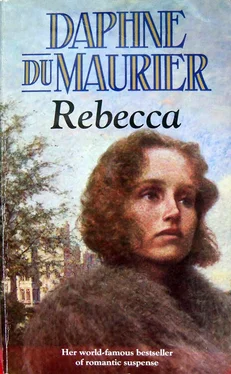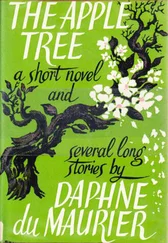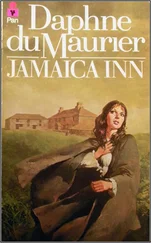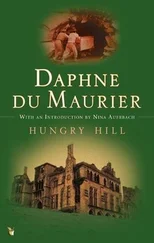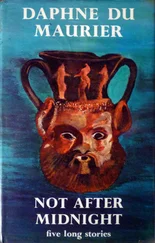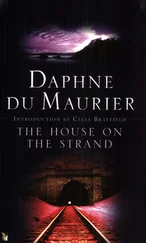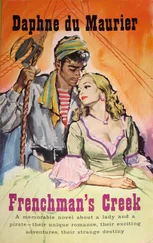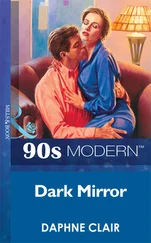I sat on the floor, clasping my knees, staring at him. 'She was clever of course,' he said. 'Damnably clever. No one would guess meeting her that she was not the kindest, most generous, most gifted person in the world. She knew exactly what to say to different people, how to match her mood to theirs. Had she met you, she would have walked off into the garden with you, arm-in-arm, calling to Jasper, chatting about flowers, music, painting, whatever she knew to be your particular hobby; and you would have been taken in, like the rest. You would have sat at her feet and worshipped her.'
Up and down he walked, up and down across the library floor.
'When I married her I was told I was the luckiest man in the world,' he said. 'She was so lovely, so accomplished, so amusing. Even Gran, the most difficult person to please in those days, adored her from the first. "She's got the three things that matter in a wife," she told me: "breeding, brains, and beauty." And I believed her, or forced myself to believe her. But all the time I had a seed of doubt at the back of my mind. There was something about her eyes…"
The jig-saw pieces came together piece by piece, the real Rebecca took shape and form before me, stepping from her shadow world like a living figure from a picture frame. Rebecca slashing at her horse; Rebecca seizing life with her two hands; Rebecca, triumphant, leaning down from the minstrels' gallery with a smile on her lips.
Once more I saw myself standing on the beach beside poor startled Ben. 'You're kind,' he said, 'not like the other one. You won't put me to the asylum, will you?' There was someone who walked through the woods by night, someone tall and slim. She gave you the feeling of a snake… Maxim was talking though. Maxim was walking up and down the library floor. 'I found her out at once,' he was saying, 'five days after we were married. You remember that time I drove you in the car, to the hills above Monte Carlo? I wanted to stand there again, to remember. She sat there, laughing, her black hair blowing in the wind; she told me about herself, told me things I shall never repeat to a living soul. I knew then what I had done, what I had married. Beauty, brains, and breeding. Oh, my God!'
He broke off abruptly. He went and stood by the window, looking out upon the lawns. He began to laugh. He stood there laughing. I could not bear it, it made me frightened, ill. I could not stand it.
'Maxim!' I cried. 'Maxim!'
He lit a cigarette, and stood there smoking, not saying anything. Then he turned away again, and paced up and down the room once more. 'I nearly killed her then,' he said. 'It would have been so easy. One false step, one slip. You remember the precipice. I frightened you, didn't I? You thought I was mad. Perhaps I was. Perhaps I am. It doesn't make for sanity, does it, living with the devil.'
I sat there watching him, up and down, up and down.
'She made a bargain with me up there, on the side of the precipice,' he said.' "I'll run your house for you," she told me, "I'll look after your precious Manderley for you, make it the most famous show-place in all the country, if you like. And people will visit us, and envy us, and talk about us; they'll say we are the luckiest, happiest, handsomest couple in all England. What a leg-pull, Max!" she said, "what a God-damn triumph!" She sat there on the hillside, laughing, tearing a flower to bits in her hands.'
Maxim threw his cigarette away, a quarter smoked, into the empty grate.
'I did not kill her,' he said. 'I watched her, I said nothing, I let her laugh. We got into the car together and drove away. And she knew I would do as she suggested: come here to Manderley, throw the place open, entertain, have our marriage spoken of as the success of the century. She knew I would sacrifice pride, honour, personal feelings, every damned quality on earth, rather than stand before our little world after a week of marriage and have them know the things about her that she had told me then. She knew I would never stand in a divorce court and give her away, have fingers pointing at us, mud flung at us in the newspapers, all the people who belong down here whispering when my name was mentioned, all the trippers from Kerrith trooping to the lodge gates, peering into the grounds and saying, "That's where he lives, in there. That's Manderley. That's the place that belongs to the chap who had that divorce case we read about. Do you remember what the judge said about his wife…?" '
He came and stood before me. He held out his hands. 'You despise me, don't you?' he said. 'You can't understand my shame, and loathing and disgust?'
I did not say anything. I held his hands against my heart. I did not care about his shame. None of the things that he had told me mattered to me at all. I clung to one thing only, and repeated it to myself, over and over again. Maxim did not love Rebecca. He had never loved her, never, never. They had never known one moment's happiness together. Maxim was talking and I listened to him, but his words meant nothing to me. I did not really care. 'I thought about Manderley too much,' he said. 'I put Manderley first, before anything else. And it does not prosper, that sort of love. They don't preach about it in the churches. Christ said nothing about stones, and bricks, and walls, the love that a man can bear for his plot of earth, his soil, his little kingdom. It does not come into the Christian creed.'
'My darling,' I said, 'my Maxim, my love.' I laid his hands against my face, I put my lips against them.
'Do you understand?' he said, 'do you, do you?'
'Yes,' I said, 'my sweet, my love.' But I looked away from him so he should not see my face. What did it matter whether I understood him or not? My heart was light like a feather floating in the air. He had never loved Rebecca.
'I don't want to look back on those years,' he said slowly. 'I don't want even to tell you about them. The shame and the degradation. The lie we lived, she and I. The shabby, sordid farce we played together. Before friends, before relations, even before the servants, before faithful, trusting creatures like old Frith. They all believed in her down here, they all admired her, they never knew how she laughed at them behind their backs, jeered at them, mimicked them. I can remember days when the place was full for some show or other, a garden party, a pageant, and she walked about with a smile like an angel on her face, her arm through mine, giving prizes afterwards to a little troop of children; and then the day afterwards she would be up at dawn driving to London, streaking to that flat of hers by the river like an animal to its hole in the ditch, coming back here at the end of the week, after five unspeakable days. Oh, I kept to my side of the bargain all right. I never gave her away. Her blasted taste made Manderley the thing it is today. The gardens, the shrubs, even the azaleas in the Happy Valley; do you think they existed when my father was alive? God, the place was a wilderness; lovely, yes, wild and lonely with a beauty of its own, yes, but crying out for skill and care and the money that he would never give to it, that I would not have thought of giving to it — but for Rebecca. Half the stuff you see here in the rooms was never here originally. The drawing-room as it is today, the morning-room — that's all Rebecca. Those chairs that Frith points out so proudly to the visitors on the public day, and that panel of tapestry — Rebecca again. Oh, some of the things were here admittedly, stored away in back rooms — my father knew nothing about furniture or pictures — but the majority was bought by Rebecca. The beauty of Manderley that you see today, the Manderley that people talk about and photograph and paint, it's all due to her, to Rebecca.' I did not say anything. I held him close. I wanted him to go on talking like this, that his bitterness might loosen and come away, carrying with it all the pent-up hatred and disgust and muck of the lost years.
Читать дальше
